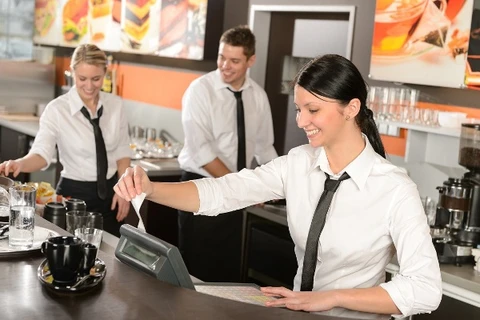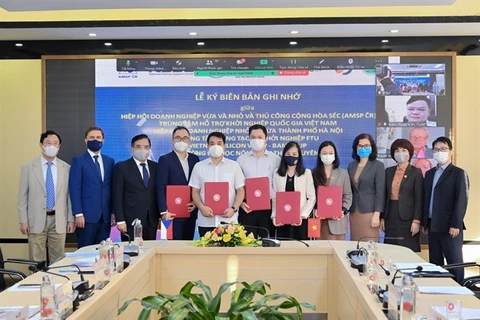Hanoi (VNA) - A seminar on introducing products of innovative start-ups to supermarkets and distribution channels took place in Hanoi on November 18. It was a bid to create a spillover effect contributing to further improving the efficiency of local production and business.
The event was co-organised by the Ministry of Industry and Trade and the Ministry of Science and Technology. Deputy Minister of Science and Technology Tran Van Tung said the seminar is an opportunity for innovative startups in Vietnam to learn from, approach, and connect with domestic and foreign distribution and retail channels, serving their market development and capacity improvement.
Low quality undermines success
In order to develop the export market, it is necessary to tackle the issue of farm produce quality, meet domestic consumption demand, increase agricultural value and develop the sector sustainably given market fluctuations, said Tran Kim Nga, director of external relations affairs at the MM Mega Market.
According to a representative of the Thai-funded CP Vietnam Livestock Joint Stock Company, for good sales in the supermarket channel, a product must have a clear origin and quality assurance. Furthermore, manufacturers and suppliers need to be able to produce a large amount of high-quality food at an affordable price, stock these goods, and anticipate market price fluctuations and consumption capacity in order to respond promptly and adjust accordingly.
“Being aware of the importance of quality control and food hygiene and safety to ensure the interests of consumers, our supermarkets resolutely stop doing business with units that do not comply with food safety and hygiene regulations,” emphasised a representative of Saigon Co.op.
Attention paid to connectivity
The 2016-2020 period could be considered the first stage of developing the national innovative startup ecosystem with the birth of a project on supporting the development toward 2025. In particular, ideas of starting a business in the food industry have attracted a great public attention.
According to Deputy Minister of Industry and Trade Do Thang Hai, projects in the food sector have contributed to meeting the urgent needs of the community and have offered an abundant supply for distribution channels.
Moreover, there have been many successful startups in the field, bringing about safe and quality food products, initially gaining the support of consumers. These have penetrated such modern distribution systems as MM Mega Market, Lotte, Vinmart, and Coopmart. However, participating in the modern retail distribution chain is not easy because innovative startup businesses are often small in scale and have yet to meet basic criteria regarding legal documents, quality certification, and packaging.
The Ministry has so far implemented many practical activities to step up trade and communications, and to create favourable conditions for innovative Vietnamese startups to develop their markets in Vietnam and abroad.
Meanwhile, on the side of the Ministry of Science and Technology, Deputy Minister Tran Van Tung said that the nation currently has more than 1,400 organisations capable of supporting startups, including 196 co-working zones, 69 business incubators, and 28 business promotion organisations.
The legal system serving startup operations is now quite effective. It supports startups in the timely research and application of new and advanced technologies, as well as the exploitation of intellectual property and new business models.
As a result, many startup communities, like Starthub.vn, Twenty.vn, Startup.vn and Launch, have been formed and effectively operated. A number of incubator units have been formed in the private sector, such as Topica Founder Institute and 5 Desire. In the public sector, there are those within the Hanoi University of Science & Technology (HUST) and the Hoa Lac high-tech park./.

























